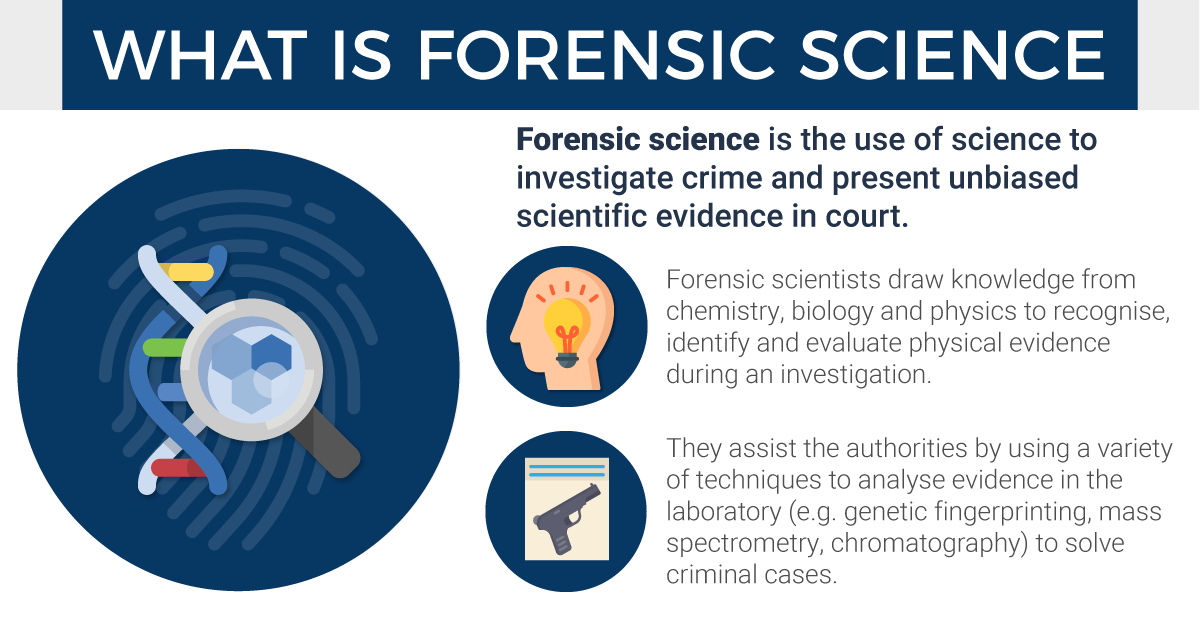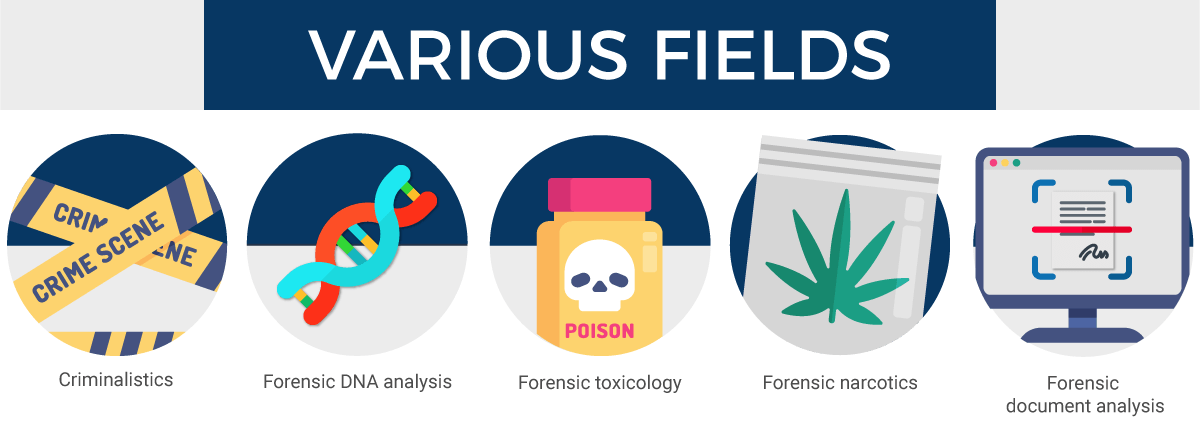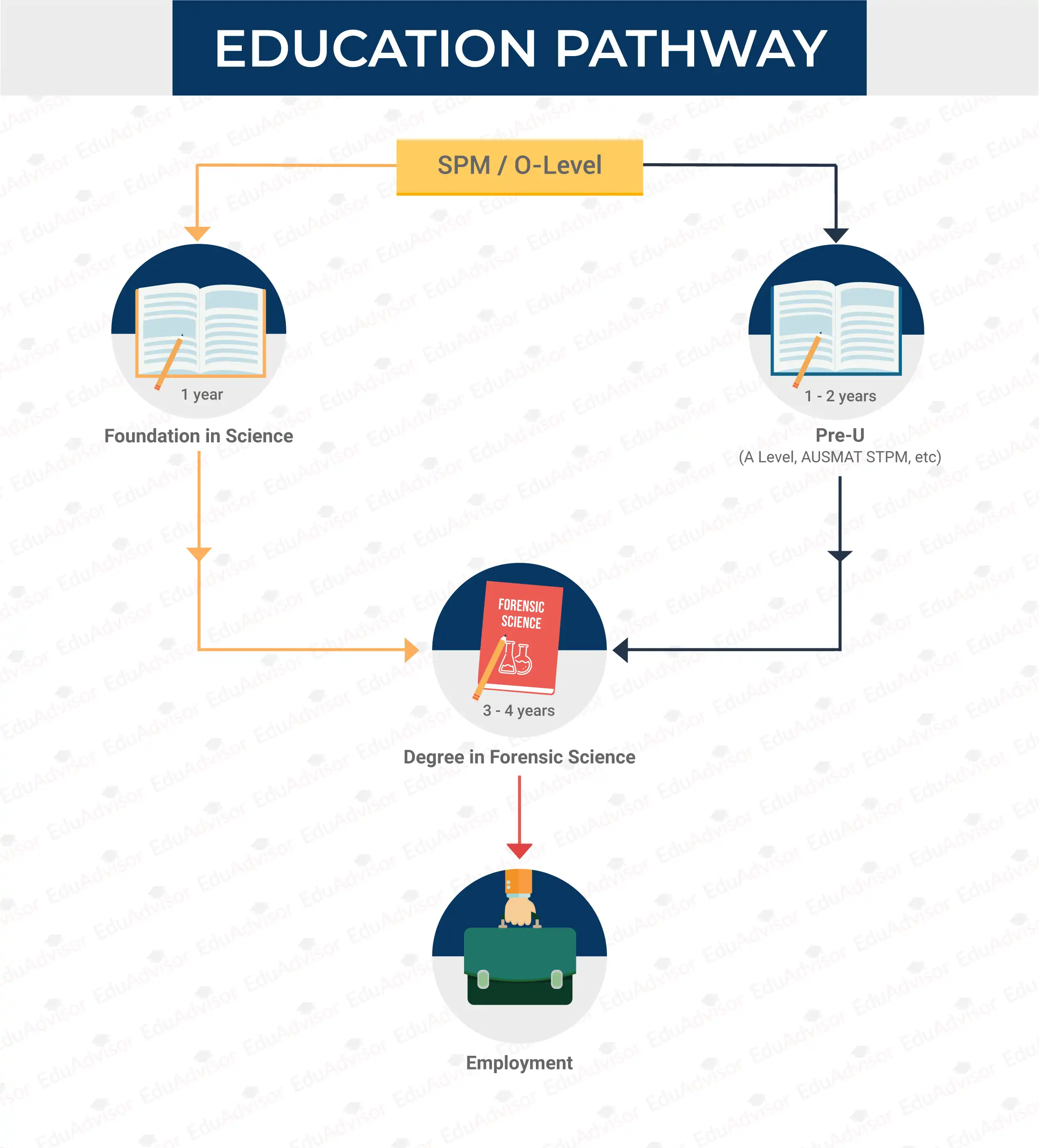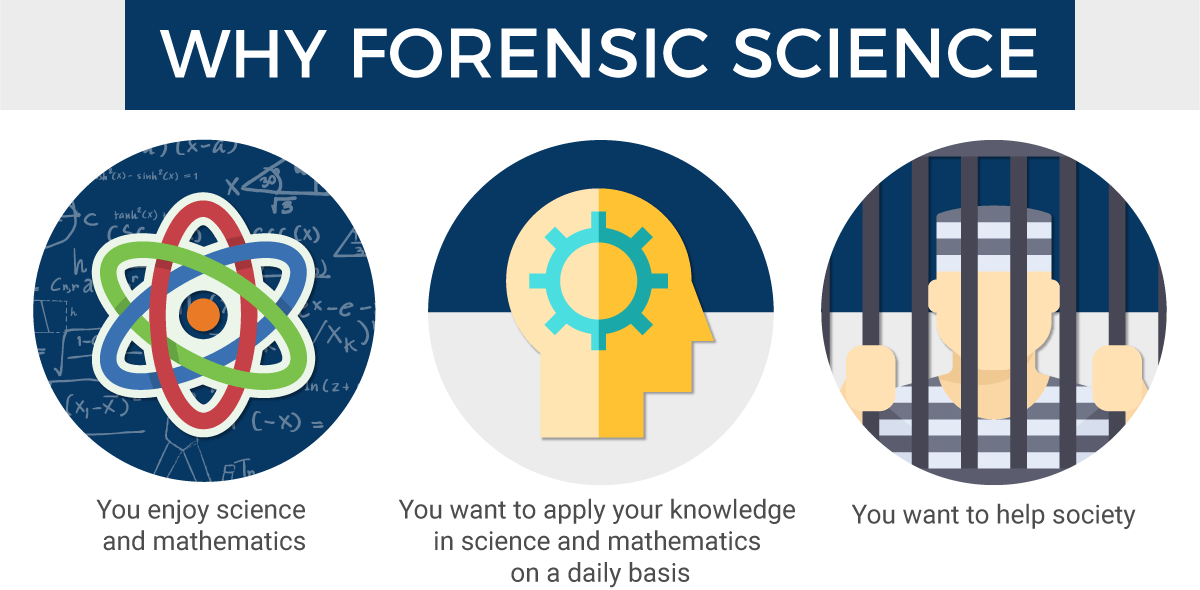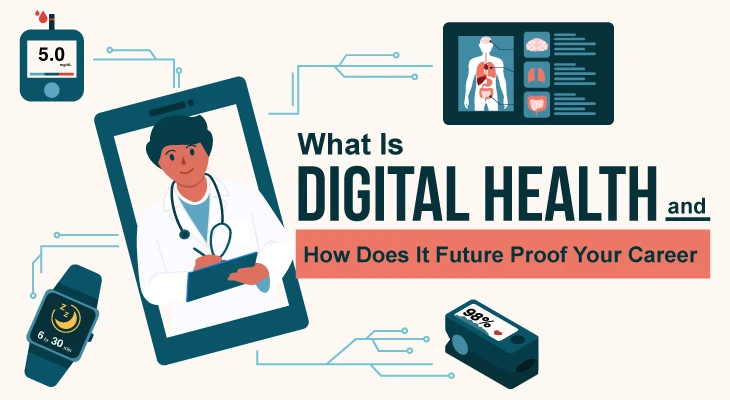The Complete Guide to Studying Forensic Science in Malaysia
Explore the pathway to becoming a forensic scientist in Malaysia and learn more about studying forensic science with this complete guide.
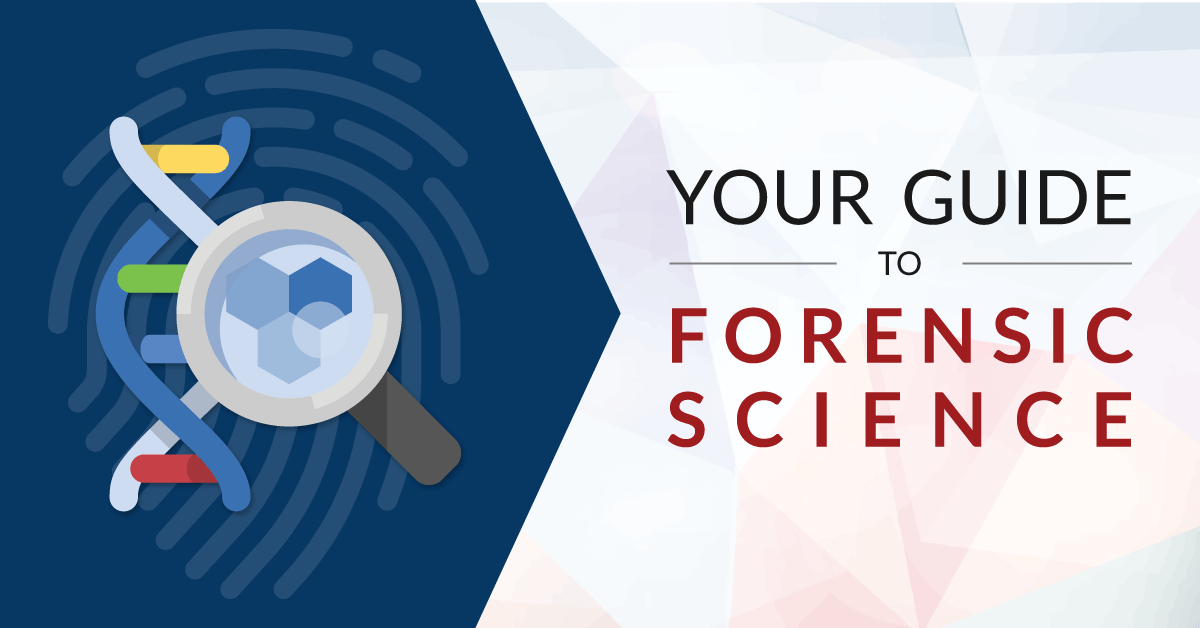
Dexter Morgan from Dexter, Abby Sciuto from NCIS, Gil Grissom from CSI — these are just a few famous (albeit fictional) names in the crime scene industry.
Fictional or real, the science behind crime scene investigation makes the profession pretty darn cool. Although TV series such as Bones and CSI glamourise the profession, forensic scientists do play a pivotal role in solving crime cases by recovering evidence from a crime scene and analysing and presenting them in court when necessary. After all, who doesn’t want to identify baddies just by a single flake of skin?
If you suspect Forensic Science sounds right up your science lab alley, our comprehensive guide on Forensic Science explores all you need to know about the course in Malaysia and help you determine if it’s the right programme for you.
#1. The Basics of Forensic Science
a) What is Forensic Science
Forensic science is the use of science to investigate crime in order to present unbiased scientific evidence that can be presented in court.
Primarily, forensic scientists who work with the police draw their knowledge from scientific fields such as chemistry, biology and physics, to recognise, identify and evaluate physical evidence during an investigation. They assist the authorities by using a variety of techniques to analyse evidence in the laboratory (e.g. genetic fingerprinting, mass spectrometry, chromatography) to solve criminal cases and may even accompany police officers to crime scenes to assist with investigations.
As part of your forensic science studies, you will equip yourself with the skills needed to analyse and handle physical evidence from crime scenes, write reports and present your evidence in court. You will also be taught the various theories of crime and deviance in society that form the basis of criminal law and the criminal justice system in Malaysia.
DID YOU KNOW
Forensics isn’t limited to forensic science à la CSI. There are also other specialised investigative fields such as forensic accounting (using accounting skills to investigate fraud and embezzlement) and computer forensics (examining data and material on digital devices in relation to cybercrime).
b) What Are the Subfields Within Forensic Science?
There are many subfields within Forensic Science, such as the following.
| Fields | What It Is All About |
|---|---|
| Criminalistics | Examines evidence in criminal investigations, including biological evidence, impression evidence (e.g. fingerprints, tire tracks), ballistics (identification of firearms) and substances |
| Forensic DNA analysis | Specialises in biological evidence (e.g. blood, saliva) for DNA analysis and paternity testing for rape cases, among others |
| Forensic toxicology | Involves identifying drugs, alcohol, poison and other substances in both the human body and animals, particularly in cases involving poisoning |
| Forensic narcotics | Specialises in the identification and analysis of dangerous drugs such as heroine, cannabis, opiates, psychotropic drugs and methamphetamine |
| Forensic document analysis | Evaluates documents and its components, such as handwriting, signature and ink composition, for authenticity |
#2. Studying a Forensic Science Degree
a) Entry Requirements & Qualifications
One of the pathways to a Forensic Science Degree is to obtain a pre-university qualification, such as A-Level, STPM or a Foundation in Science, before progressing to your degree.
(i) Degree in Forensic Science
To pursue a Degree in Forensic Science, you’ll need to complete SPM (or its equivalent) and a pre-university programme.
The requirements needed to pursue a Forensic Science Degree are:
- A-Level: Minimum 2Ds from Biology, Chemistry and Physics / Mathematics; or
- STPM: Minimum CGPA 2.33, including Biology, Chemistry and Physics / Mathematics; or
- Relevant Diploma: Minimum CGPA of 2.75; or
- Foundation in Science: Minimum CGPA of 2.33
In addition, you may also need a minimum of 5 credits in SPM, including Mathematics, one Science subject (Chemistry, Biology, Physics or General Science), English and 2 other subjects.
A Degree in Forensic Science is usually 3 to 4 years long.
Upon completion of your degree, you will be equipped with an in-depth understanding in scientific theory and its applications to crime scenes, theories in crime and society deviance based on the criminal justice system, and explore the various methods used in crime laboratories. You will also develop a range of skills such as critical thinking, analytical thinking and decision-making skills.

b) How Much Does a Forensic Science Degree Cost?
The total estimated fees to pursue a Forensic Science Degree in Malaysia can range from RM95,000 to RM100,000.
c) How Does Your Education Pathway Look Like?
Upon completing SPM (or an equivalent qualification), you can enrol in a pre-university (STPM, A-Level, etc.) or Foundation in Science programme.
Completing a pre-university or a foundation programme will enable you to proceed to a Forensic Science Degree.
Thereafter, you can continue your education by pursuing a postgraduate degree (e.g. Masters in Forensic DNA & Serology, Masters in Forensic Toxicology) to further deepen your knowledge and skills in your chosen subfield.
(d) What Will You Study in Forensic Science?
Forensic Science Degrees are designed to provide you with a wide range of knowledge and skills related to the forensic science sector upon graduating.
Typically, you are exposed to the basics of biology and chemistry, as well as hands-on practical experience using cutting-edge technology and laboratory equipment during your studies.
Some examples of subjects taught in a Forensic Science Degree are:
- Anatomy and Physiology
- Biochemistry
- Cell Biology and Genetics
- Organic Chemistry
- Firearms and Ballistics
- Forensic Entomology
- Forensic Toxicology
- Forensic DNA Technology
#3. Why Should You Study Forensic Science?
Always wanted to work with Barry Allen at S.T.A.R. Labs? Here are a few reasons why Forensic Science could be your calling.
(a) You enjoy science and mathematics
If you enjoy science subjects and have a good grasp of mathematics, then a Forensic Science-related Degree might just be perfect for you as the course will require a strong foundation in these subjects.
(b) You want to apply your knowledge in science and mathematics on a daily basis
As Forensic Science may involve a combination of subjects such as chemistry, physics, biology and a little bit of math and law, you will be putting what you learnt in school to practical use at work.
(c) You want to help society
Police officers aren’t the only ones out there combating crimes — forensic scientists play a crucial role too. Without the information and evidence from forensic scientists, police officers will not have enough to work on to book the baddies. For crime rates to go down, you will be tasked to deduce, experiment and provide the necessary evidence to help your fellow officers.

#4. What Skills Do You Need for a Forensic Science Course?
Here are some of the key skills and qualities you will need to develop to do well in a Forensic Science programme.
(a) You can think critically
As a forensic scientist, you will need to demonstrate the ability to use your critical thinking skills to obtain the necessary information, investigate and conduct experiments to assist in forensic cases.
(b) You have good oral and communication skills
To become a forensic scientist, you will need excellent oral and communication skills to communicate your findings via reports and presentations to others who are not in your field, including when testifying in court.
(c) You work well in teams
It takes a team of specialists and experts from different fields to solve crimes, so it’s imperative that you can work well with a diverse group of people.
(d) You enjoy working in a fast-paced environment
Forensic scientists may have to travel and work long, irregular hours to analyse evidence and draft their reports based on their findings. Traits such as perseverance and curiosity also helps when you’re on the job.
(e) You have strong attention to detail
Incorporating the sciences into your research and experiments require precision and accuracy — one mistake can send you and your teams in the wrong direction. So it’s imperative that your work is as meticulous and detailed as possible.
#5. What Are Your Career Options With a Forensic Science Degree?
Forensic Science graduates can seek employment opportunities in both the public and private sector, including the police force, the Malaysia Chemistry Department, private laboratories and hospitals.
Here are some Forensic Science-related careers that you can seek upon graduation:
- Forensic science technician
- Criminologist
- Toxicologist
- Crime scene investigator
- Forensic DNA analyst
If you pursue a career in other countries, you can also obtain the relevant professional qualifications (e.g. the American Board of Forensic Document Examiners, American Board of Medicolegal Death Investigators, American Board of Criminalistics, etc.) to advance your career.
#6. Where Can You Study Forensic Science in Malaysia?
Here are some universities that offer a Degree in Forensic Science in Malaysia.
Public Universities:
- Bachelor of Forensic Science (Honours) at Universiti Kebangsaan Malaysia (UKM)
- Bachelor of Science (Honours) (Forensic Science) at Universiti Sains Malaysia (USM)
- Bachelor of Science (Hons) Chemistry (Forensic Analysis) at Universiti Teknologi MARA (UiTM)
